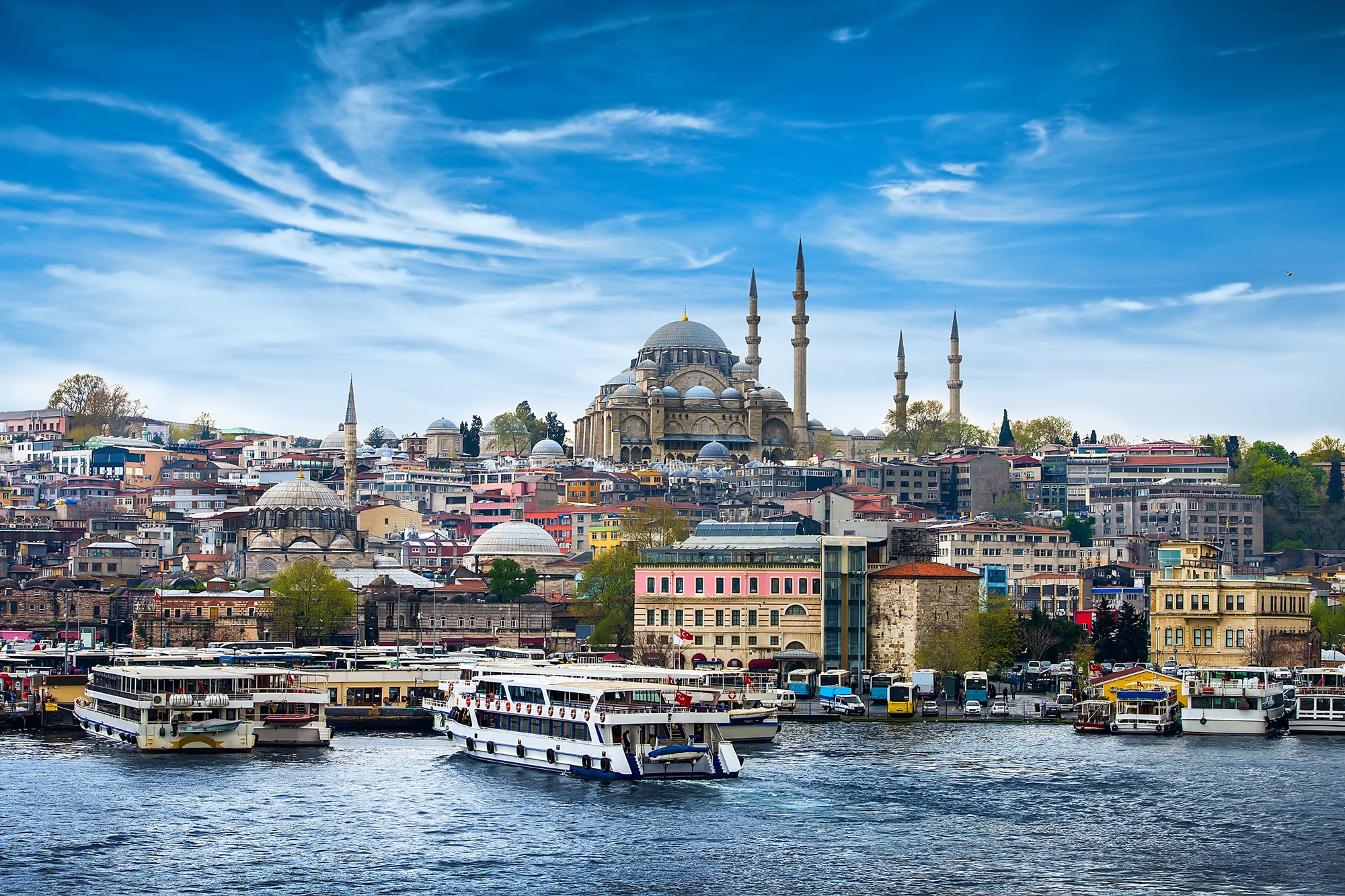The threat of a no-deal Brexit is leading UK companies to reconsider Turkey as a sourcing destination, but there is still a lack of certainty.
Last month, the UK government published long-awaited details of which imports into the UK from the European Union and countries that are part of the EU customs union would be subject to temporary tariffs in the event of a no-deal Brexit. The list includes 80 fashion product lines, such as T-shirts, jeans, polo shirts, men’s blazers and women’s underwear, most of which would attract a tax of 12%.
This has clear implications for those importing fashion from the EU, but another important market would also be affected – Turkey. Although it is not a member state, Turkey signed a customs union agreement with Brussels in 1995, so it would be subject to the same duties on imports and exports if the UK leaves the EU without a deal.
The knock-on effect on the UK-Turkey trading relationship could be significant. The UK Fashion and Textile Association (UKFT) reports that the UK imported £1.8bn of clothing from Turkey in 2018 – making it our third-biggest apparel import market behind China and Bangladesh. It is also the UK’s sixth-biggest import market for textiles.
If a no-deal Brexit goes ahead, UK companies will have to decide if the advantages of sourcing in Turkey – speed and flexibility – outweigh the additional costs 12% tariffs would entail.
Temporary pain
“Turkey is very important for our sector,” says UKFT CEO Adam Mansell. “To go from no tariffs to tariffs on certain products would increase the cost of importing clothing from Turkey by £85m [a year]. That is a big enough number to make retailers think about changing their sourcing strategies.”
The new tariffs would only be temporary – they would apply for up to 12 months while a full consultation and review on a permanent approach to tariffs is undertaken. However, they would come at a difficult time for UK retailers, which are facing tough trading conditions and weak sterling-to-euro and US dollar exchange rate.
Turkish factories can work very quickly with our designs, and offer fast repeats
Simon Brown, Joe Browns
As a result, the threat of even temporary tariffs has caused concern that UK retailers and brands – already cautious about sourcing in Turkey because of high costs, recent political unrest and ethical concerns – may look at alternative markets.
Lifestyle retailer Joe Browns currently sources 30% of its lines from Turkey – where it partners with four big factories – and the rest from China, India and Italy.
Founder and managing director Simon Brown says the advantages of sourcing from Turkey are clear: “We’re very design led, and the Turkish factories can work very quickly with our designs, and offer fast repeats [of popular styles]. We can also buy smaller initial [volumes of] stock, see what the winners are, and then get into them quickly, so the warehouse isn’t full of poor-selling lines – we’re not taking as big a risk up front.”
However, it is also Joe Browns’ most expensive sourcing market – and that is before the addition of any possible new tariffs.
“A 12% tariff would be pretty dreadful,” says Brown. “We couldn’t just pass the cost on to the consumer – we work very hard on selling the right product at the right price. We would have to take the hit to our bottom margin.”
As a result, Joe Browns is looking at new sourcing opportunities in Sri Lanka, and is in talks with existing suppliers in India about whether they could speed up production there: “We have some very good Indian suppliers, but we need to start to working with them in a different way if there’s a no-deal Brexit. I’m going to see some of our Indian suppliers [in early April] to talk about how they could do quicker repeats.”

Sun Tekstil supplies retailers such as Marks & Spencer
However, Brown emphasises that he would not move production from Turkey unless absolutely necessary: “We really don’t want to lose Turkey as a supply base. If it weren’t for Brexit, we wouldn’t be looking at Sri Lanka now. We don’t want to chop and change – relationships with suppliers are so important, and take time to build.”
The partnerships we have in place [in Turkey] are flexible and nimble
Richard King, The Cotton Textile Company

The Cotton Textile Company sources half its product in Turkey
The Cotton Textile Company, which supplies clothing and accessories to several high street fashion, lifestyle and sportswear brands, has headquarters in Essex and an office in Turkey, from where it imports half of its product – the rest is brought in from the EU.
Sales director Richard King says the company is looking at factories in Pakistan and Bangladesh, but adds: “The issue we face is that the partnerships we have in place [in Turkey] are flexible and nimble. We can move things around – in terms of sampling, dye swatches – very quickly. A big brand today asked us for 40 salesman samples within 14 days. We couldn’t do that in the Far East.”
For King, the important thing is to communicate clearly with clients: “For some time, we’ve been warning customers that a duty might become applicable, as well as customs clearance charges, and charges for paperwork. To date, most have understood.”
However, Elvan Unluturk, chairman of Turkish manufacturer Sun Tekstil, which supplies womenswear to retailers including Zara, Marks & Spencer, Tesco and Amazon, argues that Turkey is still an attractive partner for the UK: “Turkey’s close proximity [to the UK], design capabilities and speed to market are the main reasons for its success.
“If retailers look at the real cost of things, rather than the purchasing cost, it is still wiser to pay 12% more [on clothing from Turkey than to find new sourcing countries]. Buying with short lead times from Turkey lowers their stock costs and provides a better view of coming trends, and allows better buying decisions.”
However, he fears that, in the short term, “there might be some decrease in total business”: “I hope a free trade agreement (FTA) will be signed between the two countries as soon as possible, and everything will return to normal.”
Free trade
One of the much-touted benefits of Brexit was the freedom to independently negotiate FTAs with certain countries, which would allow the UK to benefit from improved trading relationships outside of EU restrictions.
“We currently source 40% from Turkey, so a tax would hurt,” says Cécile Reinaud, founder of maternitywear retailer Seraphine. “However, I hope Turkey would sign a no-tax deal with the UK [if we leave the EU without a deal], so, currently, we have no plans to exit our Turkish factories.”
Turkey and the UK have spent the two years and 10 months since the Brexit vote informally discussing what a future FTA could look like. However, Turkey’s status as a customs union partner with the EU means its hands are tied until the EU has struck a new deal with the UK.
“Civil servants are suggesting that it might not be possible to replicate a Turkey-UK FTA deal because of the terms of the Turkey-EU FTA,” says the UKFT’s Mansell. “It sounds like Turkey would need permission from the EU.”
Sun Tekstil’s Unluturk says there is “definitely” support from the Turkish side for an FTA.
“It might take some time, but I think both countries are equally important trade partners for each other,” he argues. “[A UK] FTA with the EU would be necessary before signing one with Turkey, but I am convinced it will happen.”
As of 10 April, the deadline for Brexit has been pushed back to 31 October. But given Theresa May’s difficulties in passing her deal through parliament, the possibility of a no-deal Brexit still looms.
For the Turkish clothing sector, this could be the worst possible outcome, as UK retailers may consider shifting production to other countries. However, there is hope: the tariffs are only a temporary measure and there is support on both sides for an FTA between the UK and Turkey, which could strengthen this key trading relationship in the longer term.
Although a no-deal Brexit could hit the bottom line for those sourcing from Turkish factories in the short term, the speed and quality of its production mean Turkey still holds value for money for UK retailers.
No-deal tariffs at a glance
- Tariff rates on the 80 lines of clothing affected would range from 6.5% to 12%. Check which items would be subject to a new tariff
- The rates would apply for up to 12 months while a full consultation and review on a permanent approach to tariffs is undertaken
- The rates would not apply to goods crossing from Ireland into Northern Ireland
- Countries such as Bangladesh, Cambodia and Vietnam, which currently benefit from duty-free importing to the UK under the Generalised Scheme of Preferences, would not be subject to new tariffs
Source: Drapers



